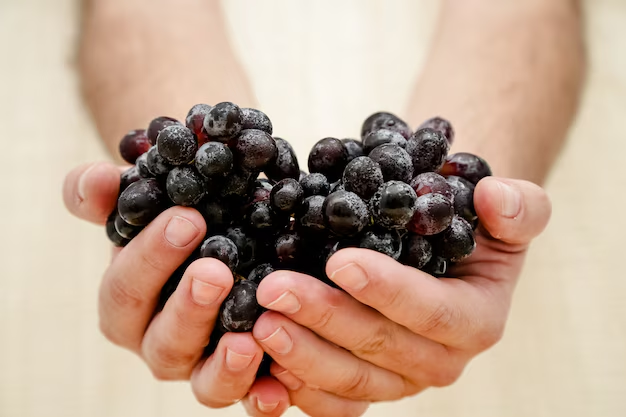Your Guide to Are Grapes Good For a Diabetic
What You Get:
Free Guide
Free, helpful information about Diabetes FAQ and related Are Grapes Good For a Diabetic topics.
Helpful Information
Get clear and easy-to-understand details about Are Grapes Good For a Diabetic topics and resources.
Personalized Offers
Answer a few optional questions to receive offers or information related to Diabetes FAQ. The survey is optional and not required to access your free guide.
Are Grapes a Healthy Choice for Diabetics?
Navigating dietary choices as a diabetic can sometimes feel like a puzzling challenge. Among the myriad foods available, grapes often raise questions about their appropriateness for those managing blood sugar levels. These small, juicy delights pack a punch of flavor, but what role should they play in a diabetic's diet? Let's explore the benefits and considerations.
Grapes and Glycemic Index
Grapes are a low-calorie, nutrient-rich fruit, but they contain natural sugars, primarily fructose. For diabetics, understanding the glycemic index (GI) of foods is crucial. The glycemic index gauges how quickly a food raises blood glucose levels. Grapes have a moderate glycemic index score, meaning they can moderately influence blood sugar levels.
The key to enjoying grapes is portion control. A small serving, such as about 17 grapes, has approximately 15 grams of carbohydrates. Consuming them in moderation ensures you enjoy their sweetness without adverse impacts on your glucose levels.
Nutritional Benefits of Grapes
Beyond their sugar content, grapes are loaded with beneficial nutrients. These include:
- Vitamins C and K: Essential for immune health and bone strength.
- Antioxidants: Like resveratrol, which supports heart health and may help reduce blood sugar spikes.
- Hydration and Fiber: High water content and fiber aid digestion and help with satiety, which might contribute to weight management—an important factor for diabetics.
Incorporating grapes can add variety and nutrition to a diabetic-friendly diet when done thoughtfully.
Tips for Including Grapes in a Diabetic Diet
- Pair with Proteins or Healthy Fats: Eating grapes alongside protein-rich foods (like nuts or cheese) can help slow the absorption of sugar and manage blood glucose spikes.
- Watch Your Portion Size: Stick to small portions to mitigate impacts on blood sugar.
- Mix with Other Fruits: Combine grapes with low-GI fruits, such as berries, to balance sugar content while maintaining diabetic-friendly nutrition.
Exploring Financial Resources for Diabetic Care
Managing diabetes extends beyond diet to also consider the financial impact. Expenses like medical appointments, glucose monitors, and medications can burden budgets. For those seeking assistance, several programs and options exist:
- Medicare and Medicaid: These programs often cover some diabetic care costs. Check eligibility for coverage regarding supplies and medication.
- Supplemental Nutrition Assistance Program (SNAP): If you struggle with food costs, SNAP helps cover groceries, ensuring you maintain access to diabetic-friendly foods.
- Pharmaceutical Company Programs: Many companies offer discounts or free medical supplies for eligible individuals. Check with manufacturers of your medications or supplies.
Financial Assistance Resources
- 🏥 Medicare/Medicaid: Assists with healthcare costs.
- 🥦 SNAP: Provides grocery assistance.
- 💊 Pharmaceutical Discounts: Reduces costs on necessary medications.
In conclusion, grapes can be a healthy addition to a diabetic diet when consumed mindfully, offering nutritional benefits without drastically affecting blood sugar levels. Meanwhile, exploring financial assistance resources can alleviate the economic challenges of managing diabetes, providing peace of mind while you focus on health and wellness.
What You Get:
Free Diabetes FAQ Guide
Free, helpful information about Are Grapes Good For a Diabetic and related resources.

Helpful Information
Get clear, easy-to-understand details about Are Grapes Good For a Diabetic topics.

Optional Personalized Offers
Answer a few optional questions to see offers or information related to Diabetes FAQ. Participation is not required to get your free guide.


